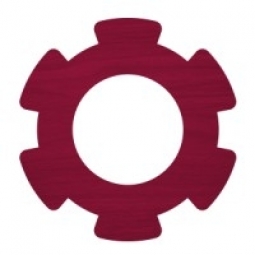Customer Company Size
Large Corporate
Region
- America
Country
- Canada
- United States
Product
- AssetWorks’ Field Service Solution
- AssetWorks Ranger
- Microsoft Dynamics AX
Tech Stack
- In-vehicle computer
- Real-time data transmission
Implementation Scale
- Enterprise-wide Deployment
Impact Metrics
- Cost Savings
- Revenue Growth
- Productivity Improvements
Technology Category
- Functional Applications - Fleet Management Systems (FMS)
Applicable Industries
- Oil & Gas
Applicable Functions
- Logistics & Transportation
- Procurement
Use Cases
- Fleet Management
- Remote Asset Management
Services
- System Integration
- Software Design & Engineering Services
About The Customer
The customer is a mid-stream fluid hauling company based in western Canada. The company specializes in the transportation, gathering, and storage of crude oil, liquefied petroleum gas, and other petroleum products. Its operations span across key producing regions of Canada and into several states in the northwestern U.S. The company operates a fleet of over 400 trucks and 500 trailers. All of the organization’s driving and hauling operations are contracted out. The company recognized the importance of accurate and timely paperwork so that customer billing and contractor payment could be improved.
The Challenge
The company, a mid-stream fluid hauling company in western Canada, was facing challenges with its field ticketing process. The company's operations were 100% paper-based, relying on contracted drivers to manually complete paperwork accurately and on time. However, this led to constant challenges as manual data entry errors, lost tickets, and regular delays in paper submissions to office personnel led to thousands of dollars in postponed or lost revenues at the end of every month. In addition, the company needed a solution to track the location of any given trailer in the field, as each became an expensive risk to consider once filled with petroleum products and other fluids for hauling.
The Solution
To resolve these challenges, the company chose AssetWorks’ Field Service Solution. The Field Service Solution connects field operators and office staff and allows the status and location of jobs to be tracked in real-time. AssetWorks Ranger, a rugged in-vehicle computer, facilitates the electronic generation and management of field tickets and automatically secures all job completion details. The collection and transmission of this data is guaranteed, as the Field Service Solution is fully integrated with the company’s back office Microsoft Dynamics AX billing system. Now that workflows are streamlined and captured electronically, the company can track the entire loading and unloading process and address any issues in real-time. Drivers can complete field tickets from the cab of their truck and each Ranger computer maintains a job history that can be reviewed to ensure that both the contractors and organization can accurately bill for work completed.
Operational Impact
Quantitative Benefit

Case Study missing?
Start adding your own!
Register with your work email and create a new case study profile for your business.
Related Case Studies.

Case Study
Taking Oil and Gas Exploration to the Next Level
DownUnder GeoSolutions (DUG) wanted to increase computing performance by 5 to 10 times to improve seismic processing. The solution must build on current architecture software investments without sacrificing existing software and scale computing without scaling IT infrastructure costs.

Case Study
Remote Wellhead Monitoring
Each wellhead was equipped with various sensors and meters that needed to be monitored and controlled from a central HMI, often miles away from the assets in the field. Redundant solar and wind generators were installed at each wellhead to support the electrical needs of the pumpstations, temperature meters, cameras, and cellular modules. In addition to asset management and remote control capabilities, data logging for remote surveillance and alarm notifications was a key demand from the customer. Terra Ferma’s solution needed to be power efficient, reliable, and capable of supporting high-bandwidth data-feeds. They needed a multi-link cellular connection to a central server that sustained reliable and redundant monitoring and control of flow meters, temperature sensors, power supply, and event-logging; including video and image files. This open-standard network needed to interface with the existing SCADA and proprietary network management software.

Case Study
Refinery Saves Over $700,000 with Smart Wireless
One of the largest petroleum refineries in the world is equipped to refine various types of crude oil and manufacture various grades of fuel from motor gasoline to Aviation Turbine Fuel. Due to wear and tear, eight hydrogen valves in each refinery were leaking, and each cost $1800 per ton of hydrogen vented. The plant also had leakage on nearly 30 flare control hydrocarbon valves. The refinery wanted a continuous, online monitoring system that could catch leaks early, minimize hydrogen and hydrocarbon production losses, and improve safety for maintenance.










